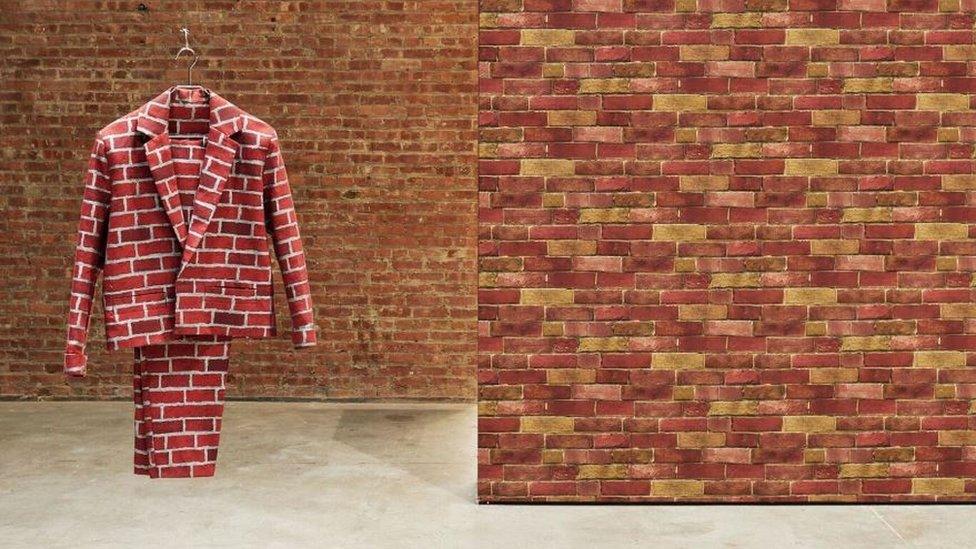Turner Prize: Helen Marten wins 2016 award
- Published
Helen Marten: "We are deeply, deeply privileged to be sitting here"
Helen Marten has won the Turner Prize, and has said she intends to share the £25,000 award with her fellow nominees.
The youngest on the shortlist, Marten uses sculpture, screen printing and writing to create her work.
The prestigious prize is awarded to a British artist, under the age of 50, considered to have put on the best exhibition of the past year.
It is the second prize in a month for Marten, who also won the inaugural Hepworth Prize.
The 31-year-old painter and sculptor brings together a range of handmade and recognisable objects from everyday life in her installations.
A collection of her work on display at Tate Britain in London as part of the Turner Prize exhibition include works made from cotton buds, marbles, snooker chalk and bicycle chains.
Accepting her prize from poet Ben Okri, Marten said she "wasn't expecting" to win and that she could not think of "a more brilliant and exciting shortlist of artists to be part of".
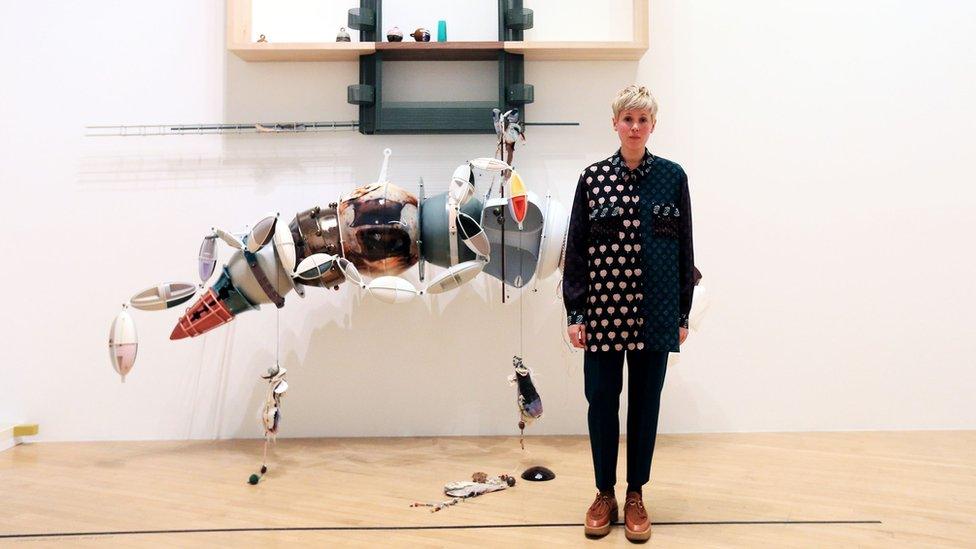
Marten's work Night-blooming genera forms part of the exhibition at Tate Britain
The London-based artist, who is from Macclesfield, faced competition from Anthea Hamilton, Michael Dean and Josephine Pryde for the prize, the aim of which is to "promote public debate around new developments in contemporary art".
The runners-up each receive £5,000.
Marten was nominated for projects including Lunar Nibs at the 56th Venice Biennale and her solo exhibition Eucalyptus Let Us In at Greene Naftali in New York.
In November, as she won the Hepworth Prize for sculpture, she announced she intended to share the £30,000 money with her four fellow nominees.
She told the BBC she also planned to share the Turner Prize money.
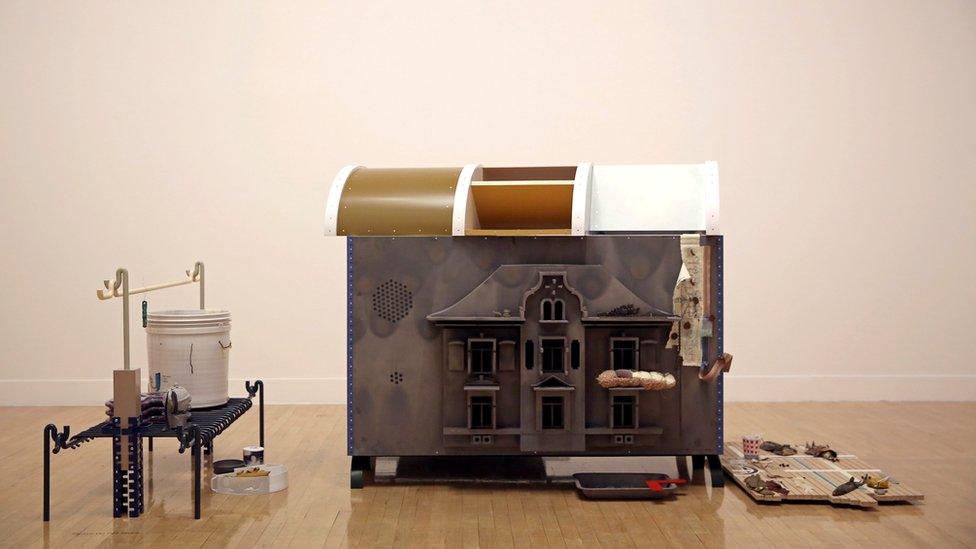
Helen Marten's work "creates poetic, pictorial puzzles", the Tate said
Addressing the ceremony, Sir Nicholas Serota, outgoing director of the Tate galleries, said: "At a time when there are fears that we in the UK may be becoming more insular and more inward-looking as a nation, the Turner Prize reminds us that art opens us to new ideas.
"We need to encourage such openness in a society that faces many challenges."
He stressed arts and humanities need to play a central role in the UK education system and should not be "pushed to the margin", adding the arts were "part of our DNA as a nation".
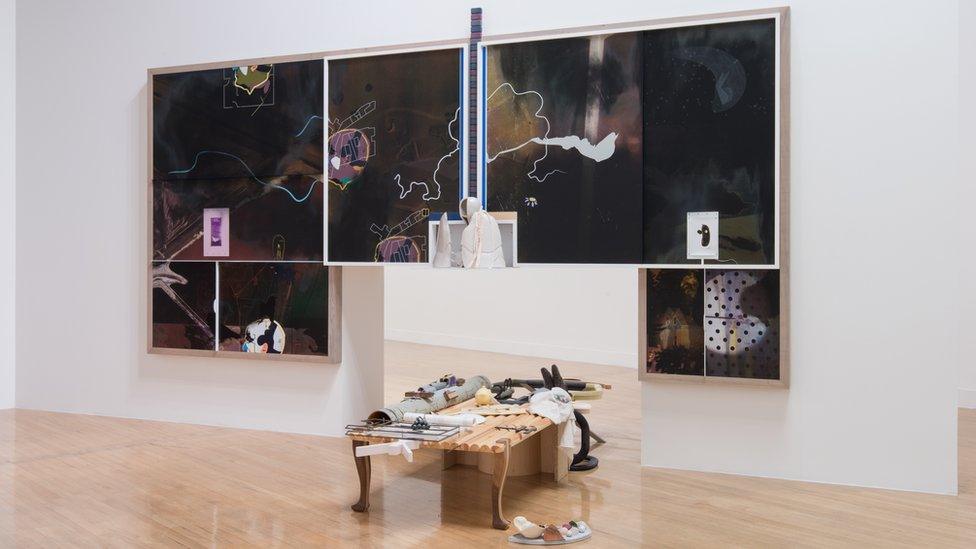
The chair of the judges said Marten's work offers up a "game of meaning"
The prize's jury was chaired by Alex Farquharson, director of Tate Britain, who described Marten as a "kind of poet".
The jury said her work "is outstanding for its extraordinary range of materials and form".
"It doesn't present you with an easy, simple, static view of itself," Farquharson added.
"The work is like reading very rich, very enjoyable, very elusive, quite enigmatic poetry - rather than a very clear report on what happened in a newspaper.
"I think the thing is to enjoy it for its visual qualities, its physical qualities, and get lost in the game of meaning and games of composition that it offers up."

Analysis by Will Gompertz, BBC arts editor
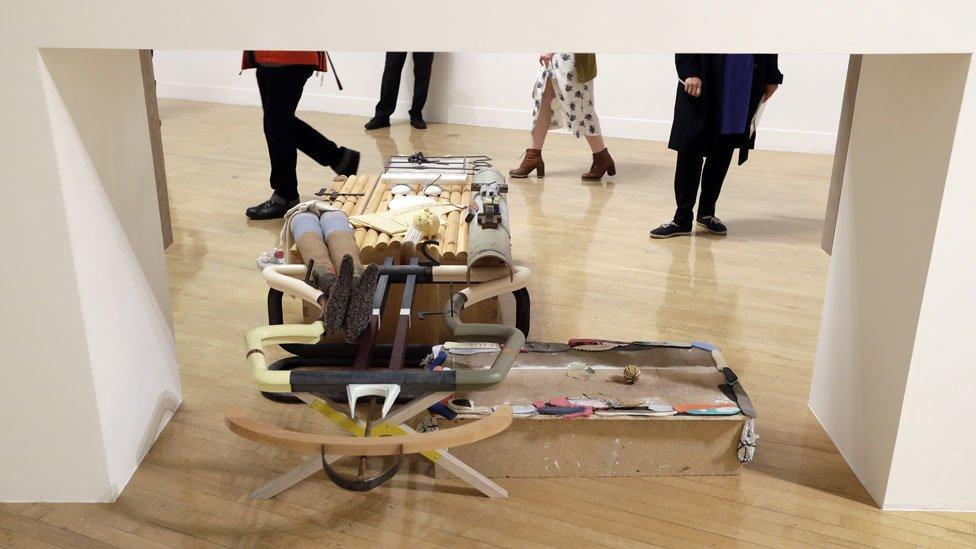
For someone who says she would prefer her work to do the talking, Helen Marten is spending a lot of time in the limelight.
Last month she made national news as the winner of the inaugural Hepworth Prize for sculpture, to which she has now added one of the world's highest profile art accolades, the Turner Prize.
At 31 years old, she was the youngest artist on the shortlist - and, also, the most difficult to fathom in terms of her work.
Her hybrid sculptures, made out of materials both found and fabricated, form a complex tableau of ideas and associations. They are poetic puzzles that question meaning and assumption, and require an almost archaeological mind-set to solve.
She wants to jolt you, provoke you, throw you off balance.

The other nominees were:
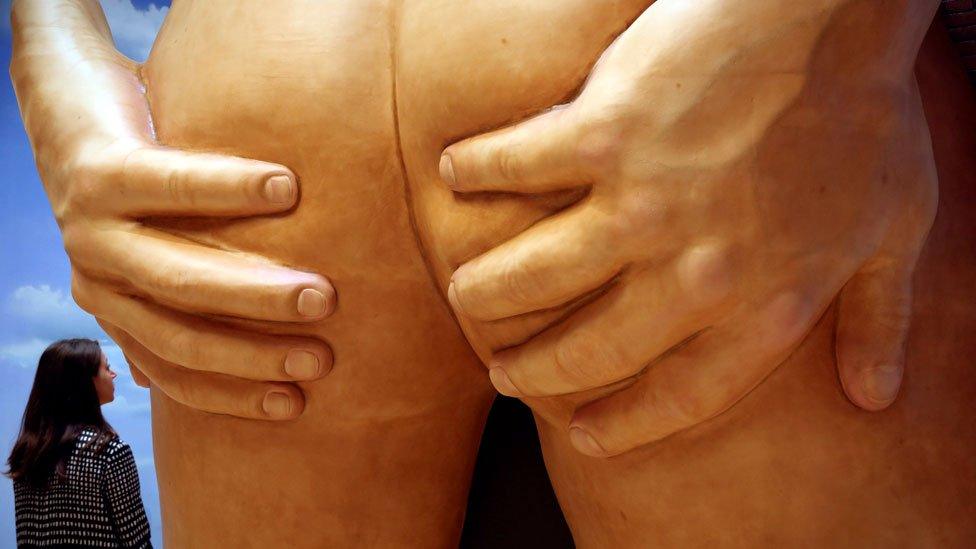
Anthea Hamilton's work is amongst the most eye-catching in the Turner Prize exhibition
Anthea Hamilton, who lives and works in London, was shortlisted for her Lichen! Libido! Chastity! exhibition at SculptureCenter, New York
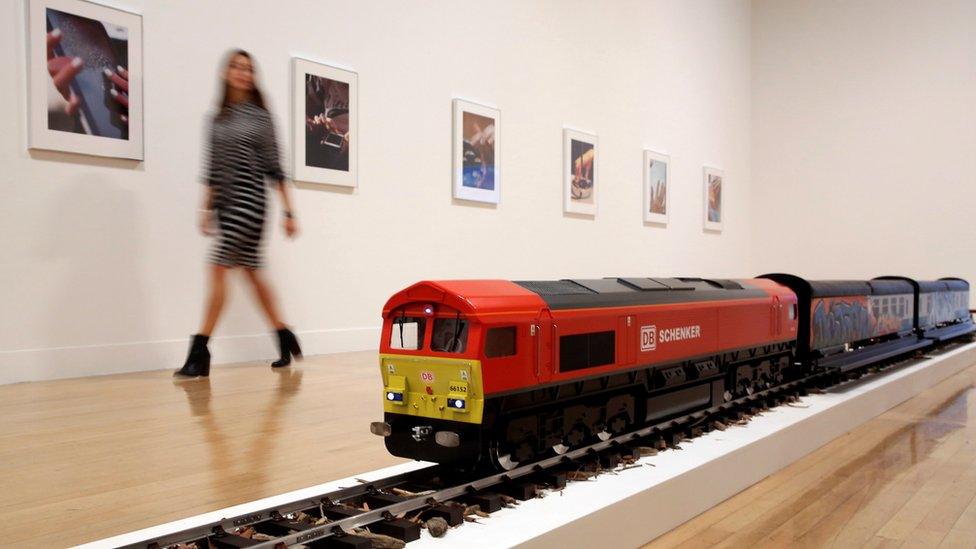
Pryde's work includes New Media Express (Baby Wants to Ride)
Josephine Pryde, whose work focuses on the meeting point between art and photography, is from Alnwick, Northumberland and was nominated for her solo exhibition Lapses in Thinking by the Person I am at CCA Wattis in San Francisco
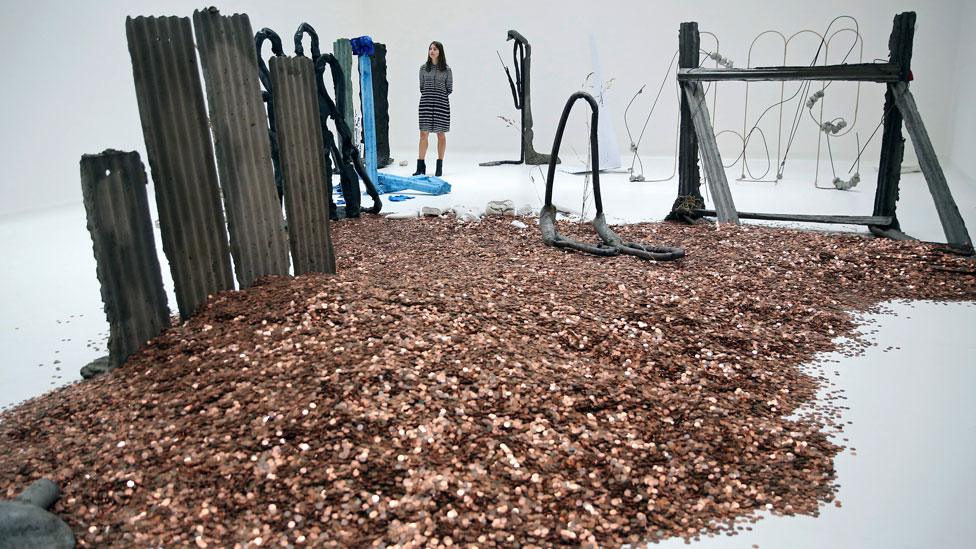
Michael Dean uses "aesthetically overlooked materials"
Michael Dean, from Newcastle, was nominated for sculptures and installations made from "aesthetically overlooked materials" like salvaged corrugated metal from a shop shutter
The ceremony was broadcast live on the BBC News Channel and BBC World and is now available online.
Follow us on Facebook, external, on Twitter @BBCNewsEnts, external, or on Instagram at bbcnewsents, external. If you have a story suggestion email entertainment.news@bbc.co.uk, external.
- Published26 September 2016
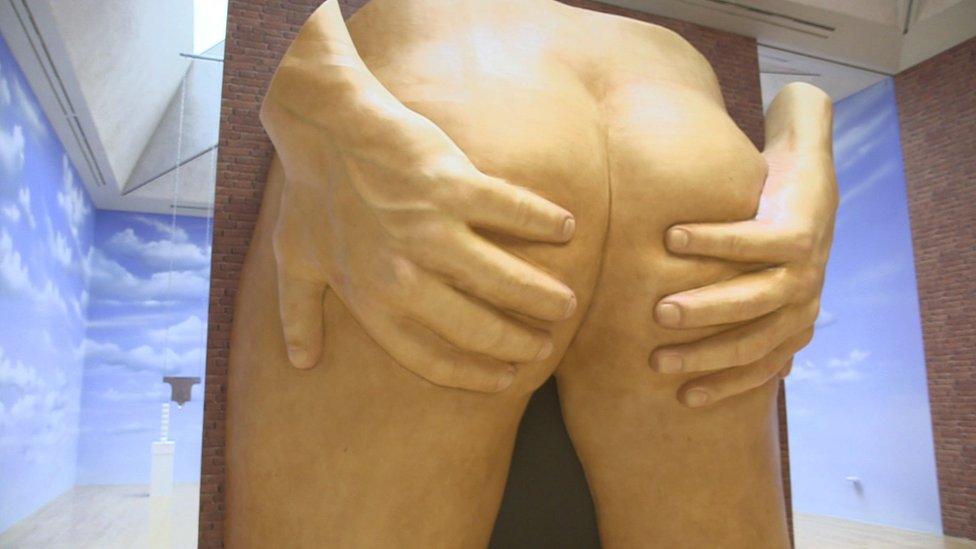
- Published5 December 2016
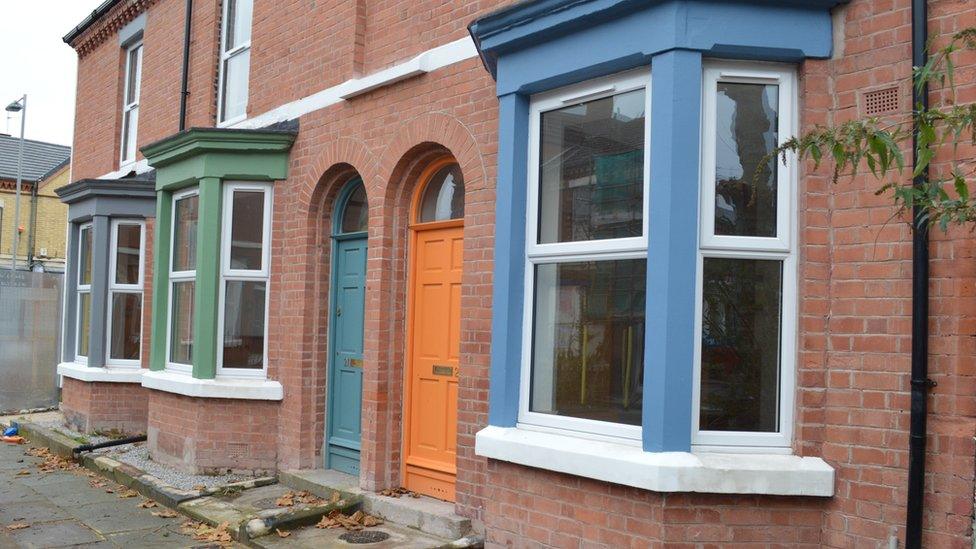
- Published5 December 2016
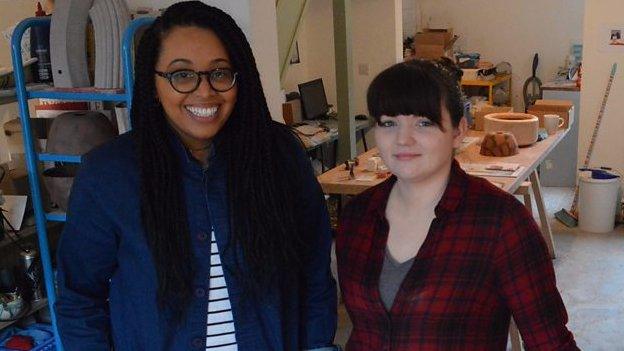
- Published18 November 2016
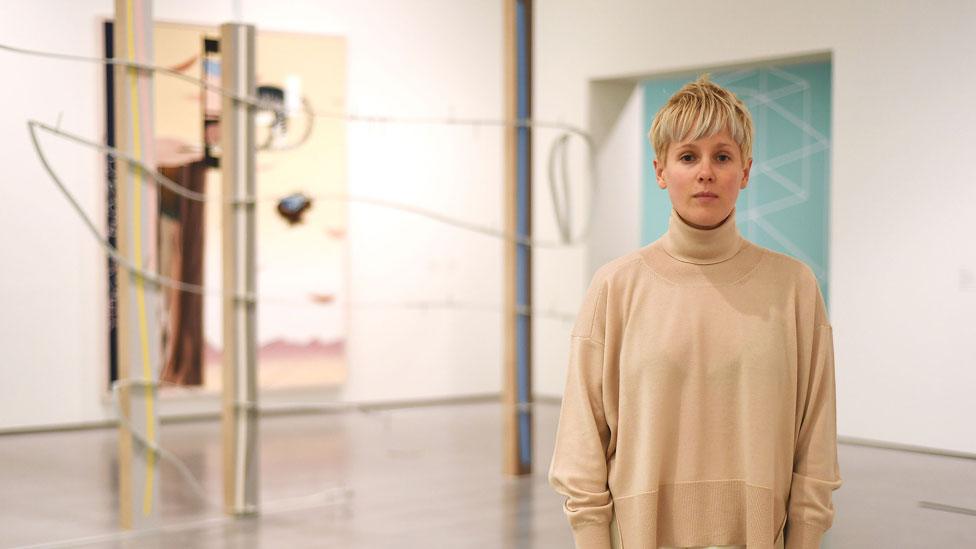
- Published27 September 2016
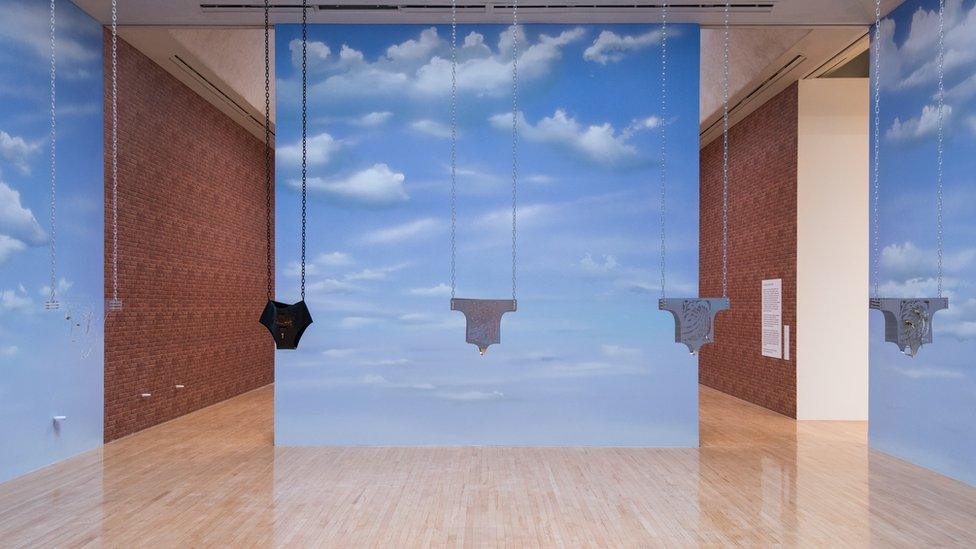
- Published26 September 2016
